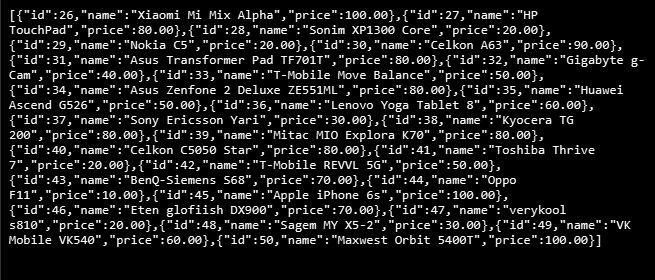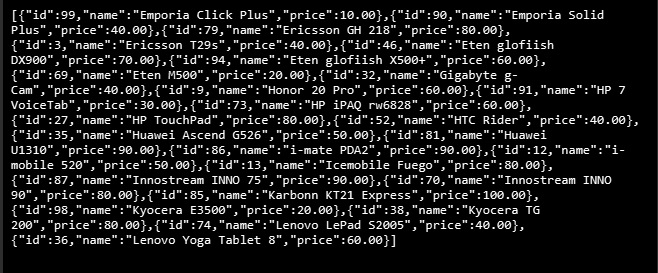Splitting larger content into distinct pages is known as pagination. This approach significantly enhances the user experience and speeds up the loading of web pages. This example will demonstrate how to create a pagination API using Express and use MySQL as a database.
Prerequisites
- Node.js
- MySQL
Setup project
Setting up the Node.js project dependencies.
npm install express mysql2
Create a testing database named "example" and run the database.sql file to import the table and data.
Project structure
├─ config.js
├─ index.js
└─ public
└─ index.html
Project files
config.js
This file contains the database connection information.
module.exports = {
host: 'localhost',
database: 'example',
user: 'root',
password: ''
}
index.js
This file is the main entry point for the Express application. It will create and setup the Express server. Because this API only has one routing URL, we will include it and the handler function in this file.
const express = require('express')
const mysql = require('mysql')
const config = require('./config')
let con = mysql.createConnection({
host: config.host,
database: config.database,
user: config.user,
password: config.password
})
let app = express()
app.use(express.static('public'))
app.get('/api/products', (req, res) => {
let page = req.query.page || 1
let size = parseInt(req.query.size) || 10
let order = mysql.raw(req.query.order || 'id')
let direction = mysql.raw(req.query.direction || 'asc')
let offset = (page - 1) * size
con.query('select * from product order by ? ? limit ? offset ?', [order, direction, size, offset], (error, result) => {
res.send(result)
})
})
app.listen(8000)
-
mysql.createConnection()will create the database connection. -
express.static('public')will serve the static resource inside the public folder. (We used to serve index.html as a default page) - We utilize the query string to get
page, size, order, directioninformation to create the paginated data by using thelimitandoffsetof the SQL query.
index.html
Instead of entering the URL manually to test our API, we used this file to create links for easier testing.
<!DOCTYPE html>
<head>
</head>
<body>
<ul>
<li><a target="_blank" href="/api/products">Default</a></li>
<li><a target="_blank" href="/api/products?page=2">Page 2</a></li>
<li><a target="_blank" href="/api/products?page=2&size=25">Page 2 and Size 25</a></li>
<li><a target="_blank" href="/api/products?page=2&size=25&order=name">Page 2 and Size 25 and Order by name</a></li>
<li><a target="_blank" href="/api/products?page=2&size=25&order=name&direction=desc">Page 2 and Size 25 and Order by name descending</a></li>
</ul>
</body>
</html>
Run project
node index.js
Open the web browser and goto http://localhost:8000
You will find this test page.
Testing
Testing without any parameters
Click the "Default" link, and it will open the URL http://localhost:8000/api/products
The API will return paginated data with default parameters (page = 1 and size = 10).
Page index test
Click the "Page 2" link, and it will open the URL http://localhost:8000/api/products?page=2
The API will return paginated data on the second page, starting with product id 11
Page size test
Click the "Page 2 and Size 25" link, and it will open the URL http://localhost:8000/api/products?page=2&size=25
The API will return paginated data on the second page by starting with product id 26 because the page size is 25.
Order test
Click the "Page 2 and Size 25 and Order by name" link, and it will open the URL http://localhost:8000/api/products?page=2&size=25&order=name
The API will return paginated data on the second page, but the product order is based on the product name.
Descending order test
Click the "Page 2 and Size 25 and Order by name descending" link, and it will open the URL http://localhost:8000/api/products?page=2&size=25&order=name&direction=desc
The API will return paginated data on the second page, but the product order is based on the product name in descending order.
Conclusion
In this article, you have learned how to create and setup the Express server in order to implement the pagination API. The pagination approach will enhance the user experience and speed up your Express API. If you like the article, please share it.
Source code: https://github.com/stackpuz/Example-Pagination-Express
Create a CRUD Web App in Minutes: https://stackpuz.com












Top comments (0)